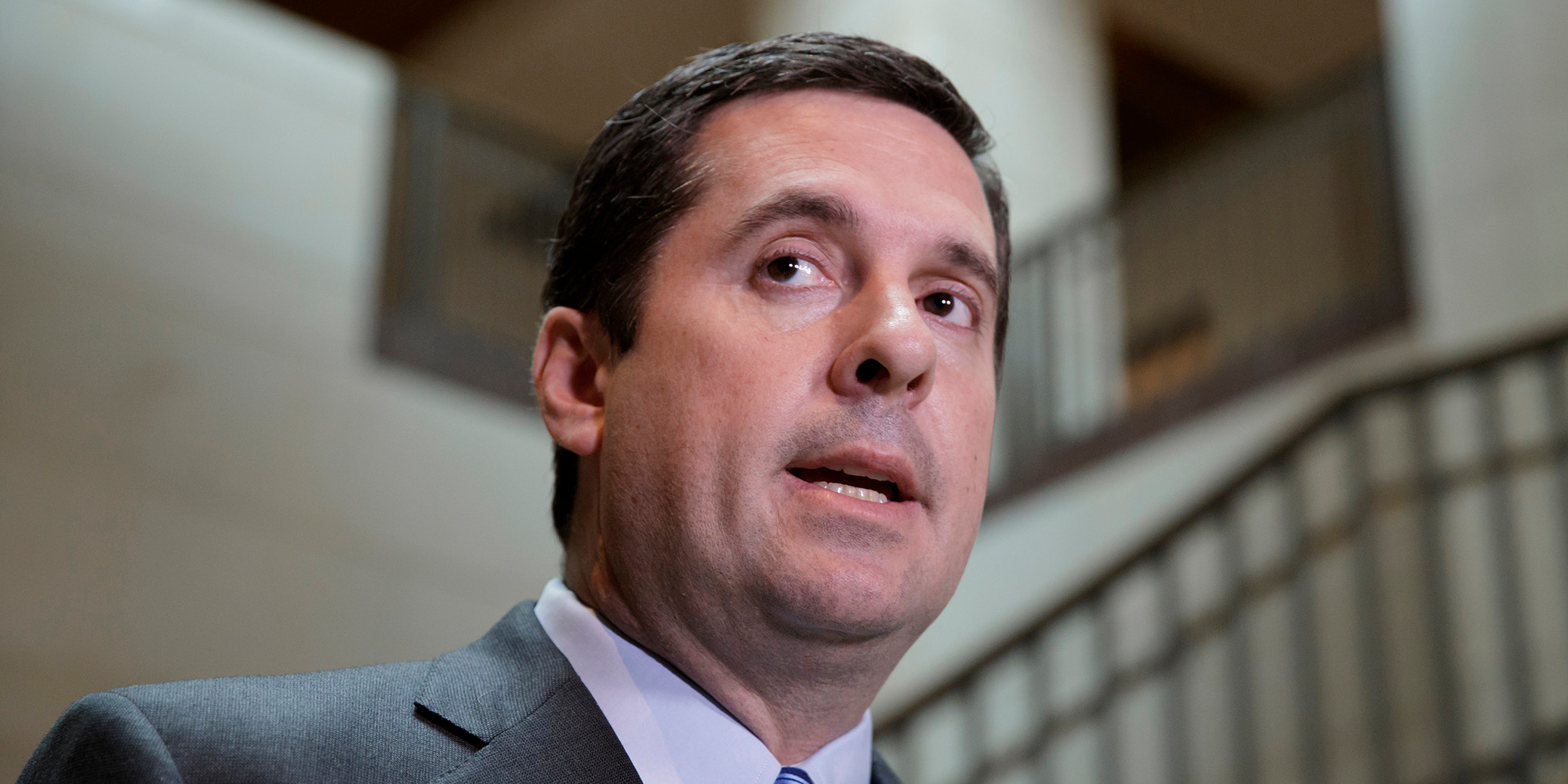- The FBI released a statement Wednesday warning against the release of a controversial memo spearheaded by Rep. Devin Nunes, the Republican chairman of the House Intelligence Committee.
- The New York Times has reported that the classified memo contends that the Department of Justice and the FBI misled an intelligence court in seeking a warrant to surveil a former member of the Trump campaign after the 2016 election.
- Nunes responded to the FBI’s objections Wednesday, calling them “spurious.”
- The memo has added fuel to partisan infighting, but current and former intelligence officials have largely downplayed its purported claims.
In an unusual move, the FBI on Wednesday released a public statement warning about inaccuracies in a classified memo spearheaded by Rep. Devin Nunes, the Republican chairman of the House Intelligence Committee, that has been a point of contention between Democrats and Republicans.
Citing three people familiar with the memo, The New York Times reported over the weekend that the document contends the FBI and the Department of Justice misled an intelligence court in seeking a warrant to surveil a former member of the Trump campaign after the 2016 election.
Republicans on the committee voted on Monday to release the document, giving President Donald Trump five days to decide whether to make it public.
The FBI said in its statement that it had been “provided a limited opportunity to review this memo the day before the committee voted to release it.”
The statement continued: "As expressed during our initial review, we have grave concerns about material omissions of fact that fundamentally impact the memo's accuracy."
The statement builds on earlier news reports that top officials at the DOJ and the FBI have expressed concerns about the document's claims, and that both Christopher Wray, the FBI director, and Rod Rosenstein, the deputy attorney general, oppose its release.
Chairman Nunes responded to the FBI's objections in a statement on Wednesday.
"Having stonewalled Congress' demands for information for nearly a year, it's no surprise to see the FBI and DOJ issue spurious objections to allowing the American people to see information related to surveillance abuses at these agencies," he said.
Trump and his Republican allies in Congress and the media have been pushing hard for the memo's release, saying it shows that the nation's top law-enforcement agencies are biased against the president. Democrats, meanwhile, have said it contains several inaccuracies and characterized it as a misleading document meant to distract from the investigation into Russian interference in the 2016 election.
Nunes began investigating the Justice Department and the FBI after he traveled to the White House in March, without telling his committee colleagues, to view what he said was classified information that showed surveillance abuses by Obama administration officials.
The California Republican would neither confirm nor deny at the time that he got the information from the White House. He told Bloomberg later that the information had come from a "network of whistleblowers."
Nunes briefed Trump on the information, which Nunes said showed that the president and his advisers may have had their communications "incidentally collected" - and their identities "unmasked" in intelligence reports - by the intelligence community after the election.
The Daily Beast reported on Tuesday that Nunes also refused to say whether he worked with the White House on the memo.
When Democratic Rep. Mike Quigley asked Nunes whether he or his aides had been in contact with the White House while compiling the memo, Nunes deflected several times before saying, "I'm not answering," the report said, citing people familiar with the exchange.
Trump will decide whether to release the memo

Trump has three more days to decide whether to make the memo public.
In response to Rep. Jeff Duncan's plea after the State of the Union address on Tuesday night to release the document, Trump said, "Oh yeah, don't worry, 100%."
On Wednesday morning, the White House chief of staff, John Kelly, suggested Trump would follow through.
The memo "will be released here pretty quick, I think, and the whole world can see it," Kelly said during an interview on Fox News Radio.
The FBI said in its statement that it "takes seriously its obligations" to the Foreign Surveillance Intelligence Court and "compliance with procedures overseen by career professionals in the Department of Justice and the FBI."
"We are committed to working with the appropriate oversight entities to ensure the continuing integrity of the FISA process," it said.
An source within the intelligence community with knowledge of the memo told Business Insider on Wednesday that the document contained a host of inaccuracies and if released could negatively affect the bureau's work.
"The only thing [releasing the memo] does is stoke the partisan bickering on Capitol Hill and the White House," they said, adding that "anyone who's in this field can tell that the information in this memo shouldn't be taken seriously" and would harm the FBI's ability to do its job.
"This is just a debacle," said Rick Smith, a former counterintelligence agent who spent 25 years at the bureau. "I can see why [the FBI] wouldn't want it released, because you've got sources telling you stuff that's probably not true."
He said that releasing it could set a "bad precedent," adding, "The FBI is in a bind here, no matter what they do."
"If they release the memo, it's going to further conspiracy theories about this," he said, "and if they don't, it'll do the same thing anyway."

